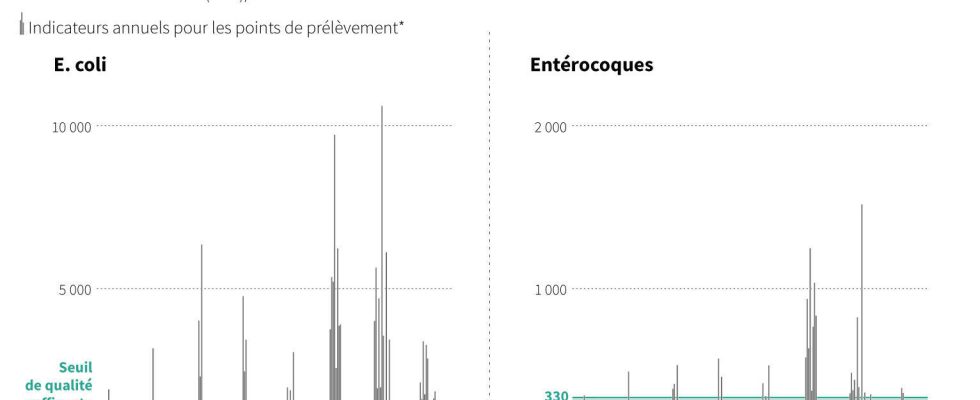The commitment gives a cold sweat to the organizers of the Olympic and Paralympic Games in Paris (July 26 – September 8): the good performance of the swimming events in the Seine depends on the quality of its water which, if it has improved, does not was still not satisfactory in the summer of 2023.
The analyzes carried out from 2015 to 2023, transmitted to AFP by the Paris town hall, showed strong variations last summer, with several peaks in the concentration of one of the two bacteria indicating fecal contamination, Escherichia coli.
In view of the European directive “ bathing» of 2006, none of the 14 Parisian water sampling points has reached a sufficient level of quality in 2023, generally from June to September.
The E. coli concentration exceeds the maximum requested (900 colony forming units/100 mL) at all points.
And that of enterococci, the other bacteria taken into account by the regulations, slightly exceeds the threshold required at the Ivry bridge (south-east) and the Garigliano bridge (south-west): 330 CFU/100 mL.
By the summer of 2022, however, these analyzes had reached a “sufficient” level for the two bacteria in three measuring points in the center of Paris, before a deterioration in 2023.
Paul Kennouche, head of the large cycle and water quality division of the City of Paris, however, emphasizes that out of the eight “ major points » retained by the municipality, six have seen their quality improve and two are stable. But none reaches the level expected by the European directive.
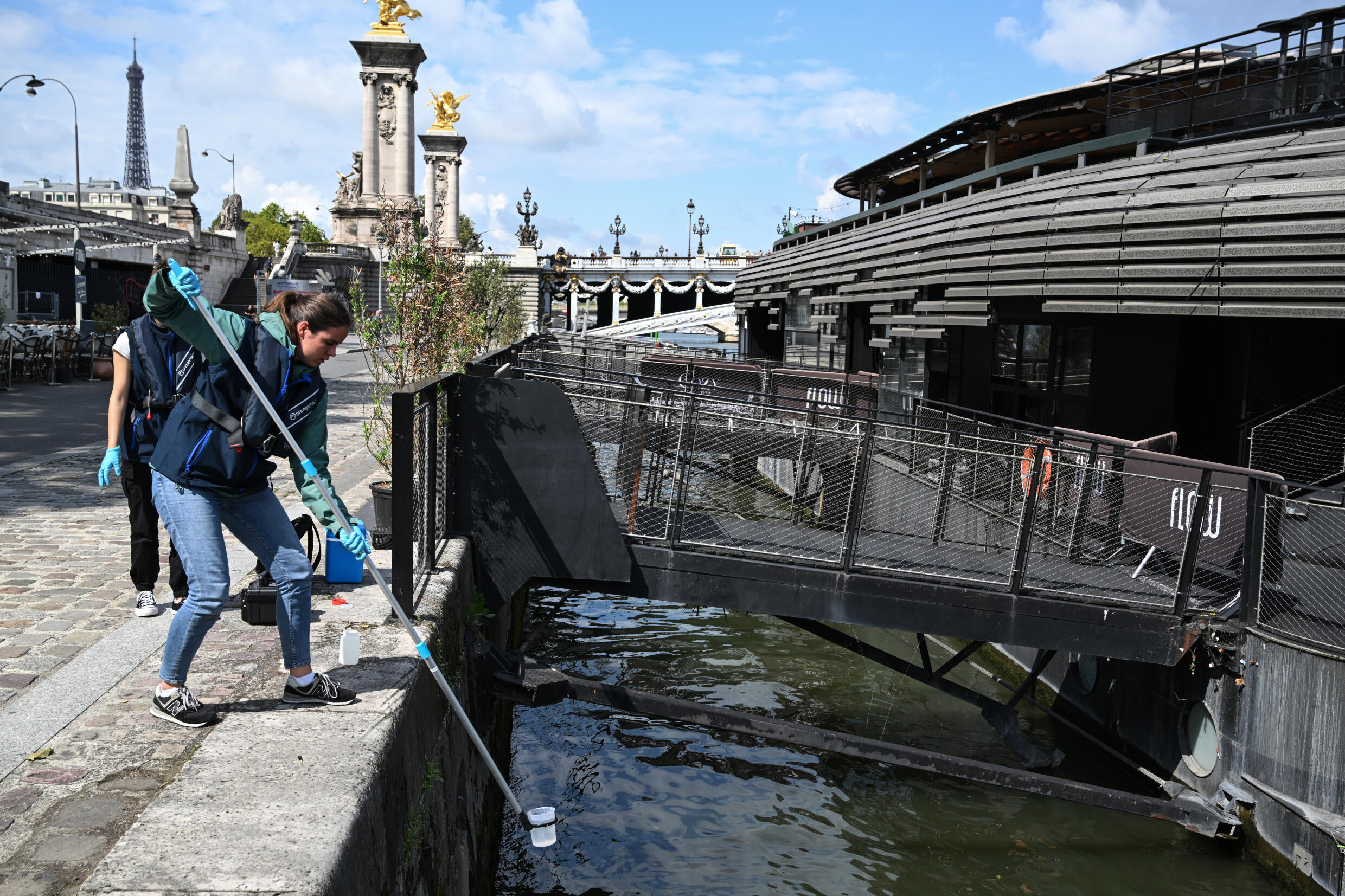
Town hall and regional prefecture also highlight that “ on the Seine swimming events site, 70% of daily measurements are good for the period from June 1 to September 7, 2023 “.
Not enough to reassure the reigning Olympic open water champion, Ana Marcela Cunha, who claimed “ a plan B “. Or the NGO Surfrider Foundation, which warned against the state “ alarming » waters of the Seine, with thresholds measured between September and March « above, or even very much above » of those recommended.
“ There was never any question of opening swimming in the Seine all year round », replied the regional prefect Marc Guillaume.
Nightmare in August
The State, communities and organizing committee particularly highlight the five almost completed works which should make it possible to increase the storage capacity of the sewer network and limit the discharge of wastewater into the river.
Before they were put into service, the general rehearsals (“test-events” in Olympic language) in August 2023 turned into a nightmare for them.
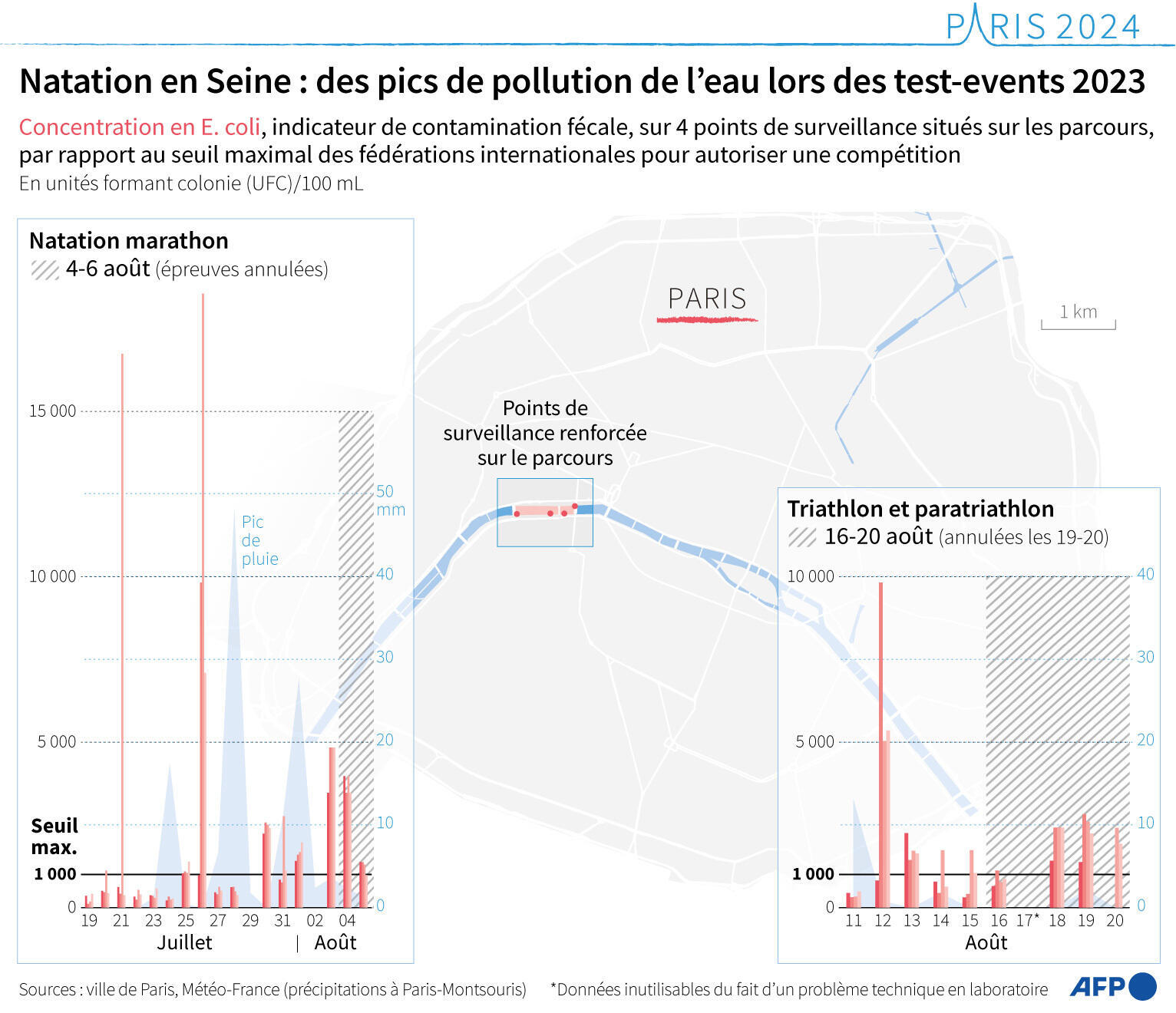
At the beginning of August, the marathon swimming competition was canceled because the quality thresholds of the international federation World Aquatics were clearly exceeded, after heavy rain.
The organizers highlighted the character “ exceptional precipitation “. “ You have to go back to 1965 to find a close level “, they insisted.
The analyzes showed an E. coli concentration exceeding 3,000 CFU per 100 mL at the four measuring points along the course, when the international federations set a target of less than 500 and a maximum of 1,000.
For the triathlon and paratriathlon from August 16 to 20 in the same area, two days of events were also canceled due to water pollution, this time caused according to the town hall by a defective valve.
And if the first three days were maintained, it did not necessarily go without saying.
“ Overheated ” in the lab
In its advisory opinion of July 25, the Regional Health Agency (ARS) declared itself in favor of holding “test events”.
But the agency prescribed postponing the tests “ if only one of the analysis results » on the four monitoring points, in the twenty-four hours preceding the event, exceeded 900 CFU/100 mL for E. coli or 330 CFU/100 mL for enterococci.
The day before the women’s triathlon on the 17th, the E. coli concentration at the Pont de l’Alma was 1,120 per 100 mL. Exceeding the ARS and federation thresholds.
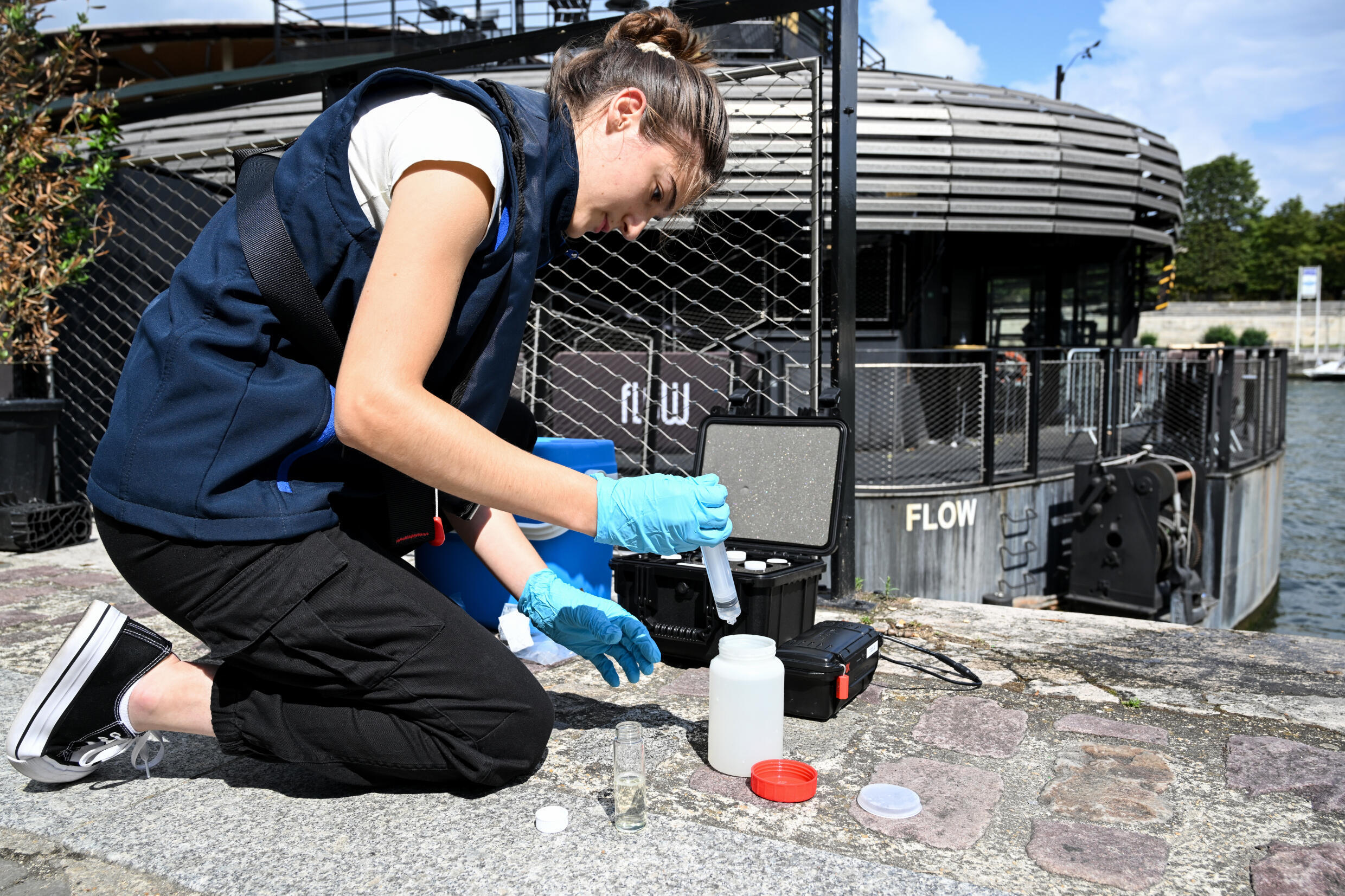
However, this bridge is not on the route, ” we turn well before », Indicates Brigitte Légaré, of the Olympic Organizing Committee. The competition was thus maintained.
Then, on the morning of the 18th, the water analysis results from the day before were unusable due to a technical problem. A ” overheated » in the laboratory, according to the explanations given to the Committee.
In their absence, the International Triathlon Federation used trends from previous days, as well as “ weather report, visual inspection, health inspection “, which ” given enough confidence » to give the green light, explains Olalla Cernuda, its communications director.
But the next day, when the analysis results from the night of the 17th to the 18th came back, the quality thresholds were largely exceeded. The rest of the “test events” have been canceled.
“ We learned »
Since then, the City of Paris has announced that the entire analysis procedure will be doubled for the summer of 2024. “ The test-event logic has taken on its full meaning; we learned », retains the City of Paris.
The town hall, the regional prefecture and their partners have established a plan drawing on “ all the consequences of what happened this summer (2023) “.
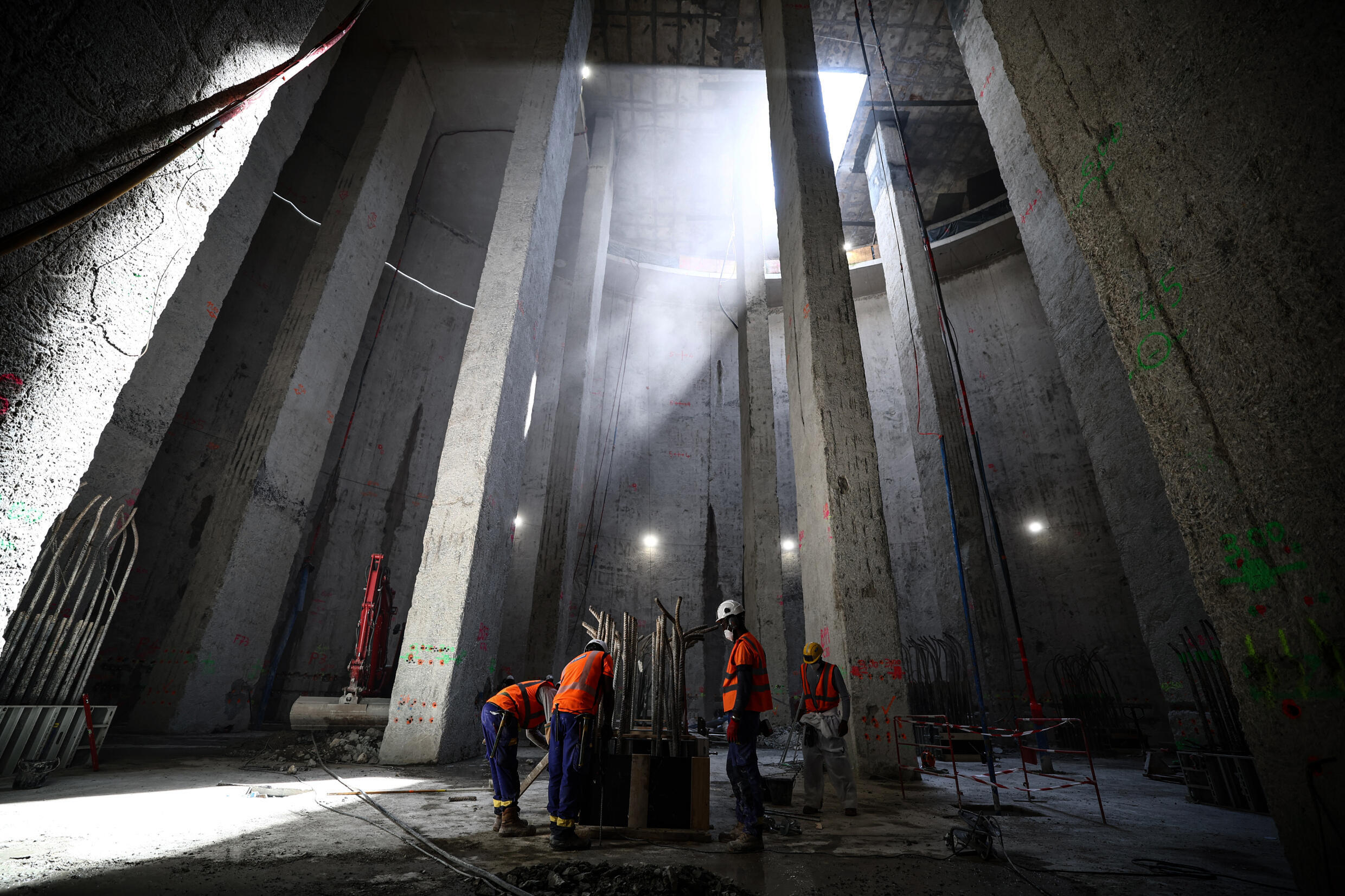
And insist on new infrastructures to absorb heavy rains, including the 50,000 m3 of the Austerlitz basin.
“ Without a doubt, if the works had been ready (…), there would have been no problem » in August 2023, said Pierre Rabadan, deputy for the Olympics and the Seine at Paris town hall.
The weather remains “ main risk » for the good performance of the Games events, recognizes the prefecture, which fears “exceptional rain”. In case of intense rainfall, untreated water – a mixture of rain and wastewater – can be released into the river.
Plan B consists of postponing the events in the Seine for a few days, but not changing location.
Beyond the Games, the work aims to achieve a lasting improvement in water quality with a view to opening around thirty bathing points in the Paris metropolitan area, on the Seine and the Marne.
